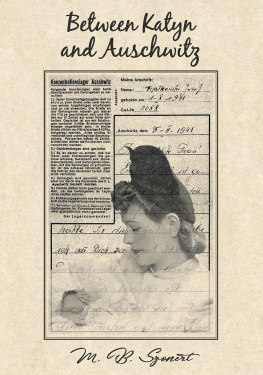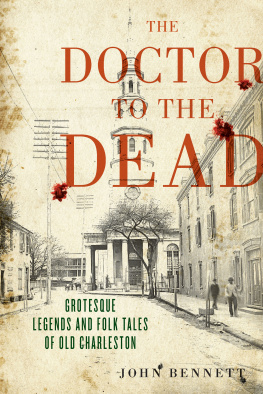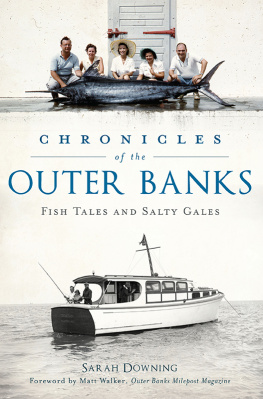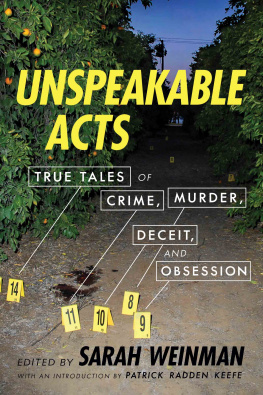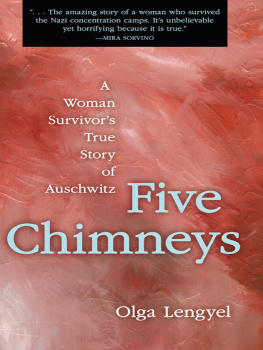Nomberg-Przytyk Sarah - Auschwitz: True Tales From a Grotesque Land
Here you can read online Nomberg-Przytyk Sarah - Auschwitz: True Tales From a Grotesque Land full text of the book (entire story) in english for free. Download pdf and epub, get meaning, cover and reviews about this ebook. year: 2009, publisher: The University of North Carolina Press, genre: Detective and thriller. Description of the work, (preface) as well as reviews are available. Best literature library LitArk.com created for fans of good reading and offers a wide selection of genres:
Romance novel
Science fiction
Adventure
Detective
Science
History
Home and family
Prose
Art
Politics
Computer
Non-fiction
Religion
Business
Children
Humor
Choose a favorite category and find really read worthwhile books. Enjoy immersion in the world of imagination, feel the emotions of the characters or learn something new for yourself, make an fascinating discovery.

- Book:Auschwitz: True Tales From a Grotesque Land
- Author:
- Publisher:The University of North Carolina Press
- Genre:
- Year:2009
- Rating:4 / 5
- Favourites:Add to favourites
- Your mark:
- 80
- 1
- 2
- 3
- 4
- 5
Auschwitz: True Tales From a Grotesque Land: summary, description and annotation
We offer to read an annotation, description, summary or preface (depends on what the author of the book "Auschwitz: True Tales From a Grotesque Land" wrote himself). If you haven't found the necessary information about the book — write in the comments, we will try to find it.
Auschwitz: True Tales From a Grotesque Land — read online for free the complete book (whole text) full work
Below is the text of the book, divided by pages. System saving the place of the last page read, allows you to conveniently read the book "Auschwitz: True Tales From a Grotesque Land" online for free, without having to search again every time where you left off. Put a bookmark, and you can go to the page where you finished reading at any time.
Font size:
Interval:
Bookmark:
AUSCHWITZ
1985 The University of North Carolina Press
All rights reserved
Manufactured in the United States of America
11 10 09 08 07 18 17 16 15 14
Library of Congress Cataloging in Publication Data
Nomberg-Przytyk, Sara, 1915
Auschwitz: true tales from a grotesque land
Translated from the unpublished Polish manuscript.
1. Auschwitz (Poland: Concentration camp) 2. Holocaust, Jewish (1939-1945)PolandPersonal narratives.
3. Nomberg-Przytyk, Sara, 1915- . I. Hirsch, Roslyn.
II. Title.
D805.P7N6 1985 940.53150392404386 84-17386
ISBN 978-0-8078-1629-5
ISBN 978-0-8078-4160-0 (pbk.)
THIS BOOK WAS DIGITALLY PRINTED.
To my grandson
Sasha Przytyk
The editors and the translator would like to thank the
Sigmund Strochlitz Foundation, which gave its support
to this project in memory of Herman and Regina
Strochlitz, two of the six million.
The original Polish typescript of this book, dated 1966, is on deposit in the Yad Vashem Archive, where it was discovered by Eli Pfefferkorn. When I first undertook to translate a forty-page segment of typescript, supported by a generous grant from Mr. Sigmund Strochlitz, I knew nothing about the author, not even whether she was still alive. It took no more than a few minutes of reading for me to recognize that I was dealing with an author of unusual talent. It was not that the manuscript broke new ground on the general nature of the Auschwitz-Birkenau death factory, for by the time I started translating, in September 1981, the horrors had already been documented many times over. What struck me about this manuscript was the authors ability to make the characters in the camp emerge as unique individuals, even against the backdrop of camp depersonalization and imminent extermination. Here was a readable, dramatically compelling account, not simply of the authors consciousness, but of the people in the camp who were caught in the meatgrinder of historynot only prisoners but captors as well.
In May 1982, aided by a travel grant from the American Philosophical Society, I was able to go to Jerusalem and, with the kind assistance of Danuta Dombrowska and Shalmi Barmore of Yad Vashem, obtain a copy of the entire typescript of about two hundred pages. My next step, on returning to the United States, was to determine whether the manuscript had been published in any form. A check of the British Museum Catalogue and of the NUC of the Library of Congress revealed that a Sara Nomberg-Przytyk had published a book entitled Columny Samsona (The Pillars of Samson) in Lublin, Poland, in 1966. After obtaining one of the few copies available in this country, via interlibrary loan, I soon discovered that The Pillars of Samson narrated events in the Bialy-stok Ghetto up to the time of its liquidation, at which point the author had been transported to the Stutthof concentration camp. Since Auschwitz: True Tales from a Grotesque Land starts with the authors being transported from Stutthof to Auschwitz, and since the author mentions her experiences in the Bialystok Ghetto, I concluded that both books were by the same author. Although Auschwitz is so fast-paced that I needed no incentive other than the entire manuscript of the journal itself to continue with the translation, my discovery did heighten my sense of urgency.
By December 1982, I had completed translation of the entire manuscript, but I was still entirely at sea as to the fate and possible whereabouts of the author. It would have made sense, of course, to write to the Polish publisher of The Pillars of Samson, but the situation in Poland was not conducive to calling attention to an author who obviously had played a role in the political arena.
In late 1983, after the manuscript had been accepted for publication, Eli Pfefferkorn, now Holocaust Scholar Researcher of The U.S. Holocaust Memorial Council, learned that Sara might be living in Israel. Since Eli was planning a research trip to Israel at the time, locating Sara became his top priority. As it turned out, Sara was not in Israel but living in a small town in Canada, just north of the Vermont border.
Now that my husband and I have met with her and talked to her, thanks, in part, to a travel grant from the Brown Faculty Development Fund, awarded to my husband by Associate Provost James Patterson, I can fill in some of the lacunae in the provenance of the manuscript. Born on 10 September 1915, in Lublin, Poland, Sara was brought up in a hasidic atmosphere. Her grandfather, a well-known Talmudist in Poland, served as principal of a Yeshiva in Warsaw and subsequently as the rabbi of a small town outside Lublin. Many of Saras relatives were rabbis.
Growing up in a Jewish neighborhood in Lublin, Sara knew what it meant to live in poverty. As a young girl she was deeply impressed by the sight of Jewish children dying of malnutrition and of women growing old prematurely. She herself was often sent home from school for lack of tuition money. On those occasions, a card was attached to her record specifying: Sara Nomberg is not allowed to attend classes. At such times, Sara felt that she was suffering a grave injustice.
She recalls a childhood scene as follows:
We are children going on a picnic. Sitting on both sides of the wagon we are vibrant with a sense of joy and anticipation. The wagon comes to a clearing near a small village. The driver stops and sends us to the clearing, telling us to have fun. We run and play, frisking like young colts. Our shouts and singing bring the children from the nearby village, who stand at a distance, watching us as if we were dirt. One of them starts yelling, Jews, scabs. The others join in. We feel icy hatred enveloping us. The driver gathers us and drives us away when the village youths start pelting us with stones. I keep asking myself questions that Jews must have asked themselves for thousands of years. Where does this hate come from? Must it be this way?
Eventually, Sara attended a gymnasium in Lublin and the University in Warsaw. Thanks to her strong sense of social justice, Sara spent five years in confinement as a political prisoner. When Germany invaded Poland in 1939, Sara fled toward the east. In 1941 she set out for Warsaw with some friends but finally decided to remain in Bialystok because she had taught in Bialystok before the war and had a wide circle of acquaintances there. From 1941 to August 1943, when the Germans made Judenrein, Sara survived in the Bialystok Ghetto. From Bialystok she was shipped to Stutthof, and from Stutthof to Auschwitz.
After her liberation she returned to Poland, where, in 1946, she was married to Andrzej Przytyk, a magistrate. She worked as a journalist in Lublin until October 1968, when, being forced to leave the country, she emigrated to Israel. In 1975 she left Israel to join the older of her two sons in Canada.
I was interested in knowing how her manuscript came to be deposited in the Yad Vashem Archive and why it was dated 1966, the same year of the publication of The Pillars of Samson. Sara informed me that the manuscript had been accepted for publication in Poland and was about to go to press when, in June 1967, she was called into the editors office and told that, in the wake of the Six-Day War between Israel and the Arab states, her book could not be published until she removed all references to Jews. Sara argued that her narrative was not only about Jews but about people in Auschwitz, regardless of nationality, race, religion, or political persuasion. It would, she continued, be very strange indeed to present a narrative of Auschwitz that contained no mention of Jews at all. This argument fell on deaf ears, so Sara withdrew the manuscript and took it out of the country, clandestinely, when she left Poland. When she arrived in Israel, friends in the Lublin Society made the copy that was then deposited in the Archive.
Next pageFont size:
Interval:
Bookmark:
Similar books «Auschwitz: True Tales From a Grotesque Land»
Look at similar books to Auschwitz: True Tales From a Grotesque Land. We have selected literature similar in name and meaning in the hope of providing readers with more options to find new, interesting, not yet read works.
Discussion, reviews of the book Auschwitz: True Tales From a Grotesque Land and just readers' own opinions. Leave your comments, write what you think about the work, its meaning or the main characters. Specify what exactly you liked and what you didn't like, and why you think so.

